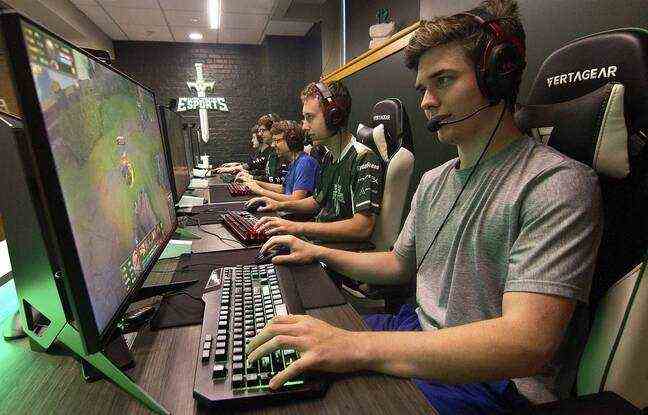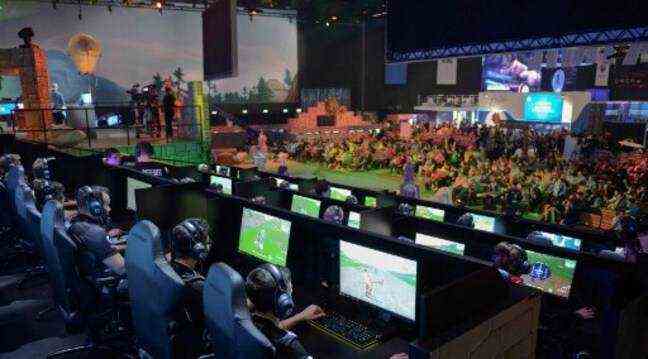At this rate, we will soon have to keep a diary of the special e-sport transfer window. Never the game transfer market League of Legends (Lol) had only been as lively as the one that opened in mid-November, at the end of the summer segment. Two XXL operations marked this “summer” window and illustrate the growing economic power of this sector in France – as in the world, for that matter.
First of all, the signing of the Swede Martin “Rekkles” Larsson, a real star of the game for years, to the Karmine Corp, a structure with galloping success since its creation last year but which does not yet have its access in LEC, the “Champions League” of Lol. A bit as if Ronaldo landed in Nice or Lens. And then last week, Vitality announced the arrival of Croatian Luka “Perkz” Perkovic, another emblem of the game from Riot Games, eight times European champion with the European juggernaut G2. A reinforcement of choice which would have cost between 3 and 4 million euros to the biggest French team.
So stoked for 2022
Watch me 😎 https://t.co/VSs6hLYti1
– Luka (@Perkz) December 8, 2021
The sum is colossal, greater for example than what is practiced in rugby for the best players in the world. It remains an exception, of course, but we now approach in the history of e-sport ten movements at nearly 1 million euros, made by European or North American teams. The result of a flourishing sector, whose revenues exceeded one billion dollars in 2020 (972 million euros) and which should reach 1.55 billion dollars (1.37 billion euros) in 2023, according to the projections from Newzoo, the benchmark gaming market analyst.
Second reason for this inflation, undoubtedly the most important because it depicts a structural evolution of the sector: the extension of the duration of the contracts. For there to be a transfer, there must be a contract for several seasons. However, it was not in the habits of e-sport. “The teams favored short contracts to easily adjust their workforce, but many suffer losses despite increasing income,” explains Nathan Laprade, one of the first agents established in the field. They realize that it is better to keep some players as assets to be able to resell them at the best price. Longer contracts are one way to secure their assets. “
It seems simple said like that, but this notion of contractual commitment in e-sport hides very diverse realities. The discipline is young, precarious, still not very structured. There are CDD players, those with the status of auto-entrepreneurs. Some games do not have a transfer window per se, opening the door to certain questionable practices. Sometimes you get hired for a specific competition that only lasts a few days. Athletes, often still teenagers, don’t always look at what they sign.
“The new generation does not see precariousness in the same way as the old one, observes Stéphan Euthine, president of France Esports, the unofficial French Federation of the discipline. For her, a short engagement is a way to retain her freedom. We have to find a balance between opportunities and precariousness. “
“Everyone does what they want”
But defining a framework is a challenge. Each game is a universe in itself, with its own players and its own rules, decided by the publisher. If Riot Games likes to control everything and has League of Legends the most structured model (well-defined transfer windows, uniformity of contracts in its European league), Valve Corporation, on the contrary, prefers to leave Counter strike self-regulate. Others, like Ubisoft with Rainbow Six, have adopted a hybrid format. “Everything about the athlete is still very vague, because everyone does what they want”, sums up Nathan Laprade. Hence the difficulty of setting up regulations that would encompass the sector.

“There is everything to clear up. It’s a bit of the Wild West, but it is less and less the case, judges Fabien Devide, the co-founder of Vitality. Regarding the statutes, it is important that we can protect the players, protect the structures, that there is a virtuous model that goes in the right direction. In France, the government seems to want to take its part in this issue. The Secretary of State in charge of digital Cédric O told us this during a round table at Vitality HQ at the end of November:
We need to be able to make e-sport a field in its own right. Questions arise at the level of regulations, player contracts, their adaptation to labor law. We must create the framework that allows this activity to develop. “
The latter is keen to make e-sport a key element of soft power for France. But the state will not be enough to move the debates forward. “The competition is global. Something that would be imposed in France would not necessarily be imposed on the United States or South Korea, and we could have an exodus of talent to these countries because the tax system or the status of the contract would be more advantageous ”, recalls Fabien Devide.
Is harmonization, at least at European level, possible? It’s worth a try, anyway. “The sector is special because it is dematerialized. You can hire a player without him being in your territory, explains Stéphan Euthine. Normally, when a player works in a territory, he responds to the labor law of that territory. This is not the case here, foreign actors may have service contracts with young people on French soil and not comply with French law. “
Patience and coordination
Another important issue: recognition of the profession of agent, to better support athletes. No approval is necessary to define oneself as such. Faced with the legal vacuum, new players have proliferated in recent months, not all focused on the well-being of their foals, to put it like that. “It would be necessary to regulate, it is certain, supports Nathan Laprade, who set up the agency Evolved Talent in 2016. The first problem is to know by whom. It must come from the publishers, but afterwards, how and what to put forward? We have the impression that they do not yet grasp the real added value for the player. We are afraid that if they regulate overnight, it will not be in the right direction. “
“Sport took 80 years to take shape”
Today, e-sport is faced with multiple problems in the social, legal and fiscal fields. “It is no longer an immature sector, but it remains a sector in the process of arming itself. The rocket is taking off, we still need patience and especially coordination, ”believes Fabien Devide, who is aware of the role of locomotive that large structures like his must play. “Sport has taken 80 years to take shape, and we have been recognized by law since 2017. We have to test things, make them evolve,” says Stéphan Euthine.
The boss of France Esports is also in the process of tackling the supervision of amateur practice, the solutions to be provided to parents unarmed in the management of their children’s screen time, and the establishment of a real training course. There too, vast construction sites.

